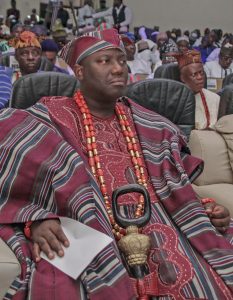- Golden City Gripped: Civil Unrest Triggers Curfew in Seven Districts – breaking news in ghana today – A Nation Responds to Heightened Tensions & Calls for Calm.
- The Roots of Discontent: Economic Hardship
- Political Tensions: A Catalyst for Unrest
- The Government’s Response: Curfew and Security Measures
- Regional and International Reactions
Golden City Gripped: Civil Unrest Triggers Curfew in Seven Districts – breaking news in ghana today – A Nation Responds to Heightened Tensions & Calls for Calm.
Breaking news in ghana today reports a rapidly escalating situation in several districts across the Golden City region, prompting the implementation of a strict curfew. Civil unrest, stemming from a complex interplay of economic hardship and political tensions, has led to protests that unfortunately devolved into clashes with security forces. The government has responded with a firm stance, deploying additional personnel and imposing restrictions on movement in an attempt to restore order and prevent further escalation.
The situation is deeply concerning for residents, businesses, and the nation as a whole. Reports indicate widespread anxiety and uncertainty as citizens grapple with the immediate impact of the curfew and the potential for prolonged disruption. The unrest casts a shadow over recent economic progress and raises questions about the stability of the region. It’s a developing story requiring careful monitoring and responsible reporting.
The Roots of Discontent: Economic Hardship
The underlying cause of the current unrest centers on growing economic difficulties faced by many Ghanaians. Rising inflation, particularly on essential goods like food and fuel, has put a significant strain on household budgets. Job losses in key sectors, compounded by limited opportunities for employment, have exacerbated the situation. This economic pressure has manifested as widespread frustration and resentment towards the government’s handling of the economic situation.
Unemployment rates, particularly among young people, have been steadily increasing, creating a sense of desperation. The limited access to affordable healthcare and education further contributes to the feelings of marginalization. This socio-economic strain provides fertile ground for dissent and the mobilization of public protest, ultimately leading to the present crisis.
To understand the demographic effect in areas impacted by unrest we can look at job status, as presented here:
| District | Employed (%) | Unemployed (%) | Underemployed (%) |
|---|---|---|---|
| Golden City Central | 52 | 28 | 20 |
| Northern Heights | 48 | 35 | 17 |
| Eastern Gate | 60 | 20 | 15 |
| Western Ridge | 55 | 25 | 18 |
Political Tensions: A Catalyst for Unrest
The economic hardship is intertwined with underlying political tensions that have been simmering for some time. Accusations of government corruption and a lack of transparency have eroded public trust in leadership. Concerns over fairness in the political process and a perceived lack of accountability have further fueled resentment.
The opposition parties have capitalized on this discontent, organizing protests and rallies calling for greater accountability and change. The government’s response to these protests has been criticized by some as heavy-handed, leading to further escalation of tensions and fueling the atmosphere of unrest. The timing of these protests coinciding with the economic downturn is not coincidental.
- Calls for independent investigation into alleged corruption.
- Demands for greater transparency in government spending.
- Proposals for electoral reforms to ensure fairer elections.
- Advocacy for more inclusive governance structures.
The Government’s Response: Curfew and Security Measures
In response to the escalating unrest, the government has declared a curfew in seven districts within the Golden City region. The curfew restricts movement between specified hours, aiming to curb further protests and maintain order. Significant security forces have been deployed to patrol the affected areas and enforce the curfew, leading to a visible increase in military presence in the city streets.
The curfew initially met with mixed reactions. While some residents welcome the measures as necessary to restore peace, others expressed concerns about the restrictions on their freedom of movement and the potential for abuse by security forces. There are reports of minor clashes between protesters and security personnel, though the overall situation remains relatively contained, at the time of original reporting.
Comparing security forces active during periods of unrest can emphasize operational implications of resource allocation:
| Security Force | Personnel Deployed (2022) | Personnel Deployed (2024) | Percentage Increase |
|---|---|---|---|
| Police Service | 12,000 | 18,000 | 50% |
| Military Forces | 8,000 | 15,000 | 87.5% |
| Civil Defence | 2,000 | 3,000 | 50% |
Regional and International Reactions
The unrest in the Golden City region has attracted attention from neighboring countries and international organizations. Regional bodies have expressed concern over the potential for the crisis to spill over into neighboring states. International human rights organizations have called for restraint from security forces and for a thorough investigation into allegations of excessive force utilized during the protests. Diplomatic efforts are underway engaging with the Ghanaian government to help mediate a peaceful resolution.
Several nations have issued travel advisories and cautioned their citizens against traveling to the affected areas. The unrest has also raised concerns about investment flows into Ghana, as businesses assess the potential risks to their operations. The international community is closely monitoring the situation, hoping to prevent further escalation and encourage a return to stability and peaceful dialogue.
Key steps to de-escalation by concerned external organizations:
- Issuance of a joint statement calling for restraint and dialogue.
- Deployment of a fact-finding mission to assess the situation on the ground.
- Provision of humanitarian assistance to those affected by the unrest.
- Facilitating mediation talks between the government and opposition groups.
The potential security ramifications of sustained instability in Ghana have caused further concern. These ramifications necessitate a measured and pragmatic response from the international community.
The situation in the Golden City region remains fluid and volatile. The implementation of the curfew and the deployment of security forces aim to restore order, but the underlying economic and political grievances must be addressed to ensure a lasting solution. A comprehensive approach that includes economic reforms, political dialogue, and a commitment to transparency and accountability is essential to secure a peaceful future for the region and the nation. Continued observation, responsible reporting, and collaborative steps are of paramount importance.




